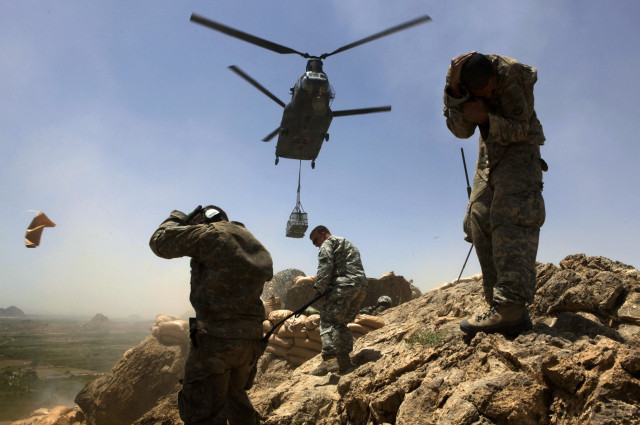Investigation into civilian Afghan deaths blames human error

The incident on February 21 sparked widespread anger at the presence of international troops in Afghanistan, and an apology from the commander of Nato forces in the country, US General Stanley McChrystal.
McChrystal has made it a tenet of his counter-insurgency strategy in fighting a Taliban insurgency that civilian casualties be kept to a minimum.
The report found that a convoy of “three vehicles carrying more than 30 civilians were mistaken for an insurgent convoy and engaged by coalition aircraft”.
The mistake was made in analysing images taken by unmanned drones, it said.
Information that the vehicles were carrying anything other than civilians - rather than militants racing to reinforce Taliban engaged in battle nearby - was “ignored or downplayed”, it said.
“The ground force commander lacked a clear understanding of who was in the vehicles, the location, direction of travel and likely course of action of those vehicles.
“Poorly functioning higher headquarters command posts failed to provide the ground force commander with the evidence and analysis that the vehicles were not a hostile threat,” it said. Citing “several shortcomings in training, communication and decision-making,” the Isaf statement said McChrystal had reprimanded four senior and two junior officers.
The incident, in an area of central Daykundi province that was carved out of Uruzgan province, killed four women and a child, and was the third such mistaken bombing raid in Afghanistan in a week.
McChrystal’s apology to President Hamid Karzai in person, and to the Afghan people in a televised broadcast, was swift but failed to quell deep concern over civilian deaths and injuries in the ongoing war against the Taliban.
Civilian casualties are an incendiary issue in Afghanistan, and are often used by Karzai and the Taliban alike for political ends, even though most are caused by the insurgents.
The United Nations said in a report that the number of civilians killed in the Afghan war jumped last year to 2,412, making 2009 the deadliest year for ordinary Afghans since the USled invasion.
By comparison, 2,118 civilians were killed in 2008.
The UN report said 67 percent of last year’s civilian deaths, or 1,630, were in insurgent attacks, while pro-government forces including Nato and US troops were responsible for 25 percent, or 596 civilian deaths last year.
Published in the Express Tribune, May 30th, 2010.



















COMMENTS
Comments are moderated and generally will be posted if they are on-topic and not abusive.
For more information, please see our Comments FAQ